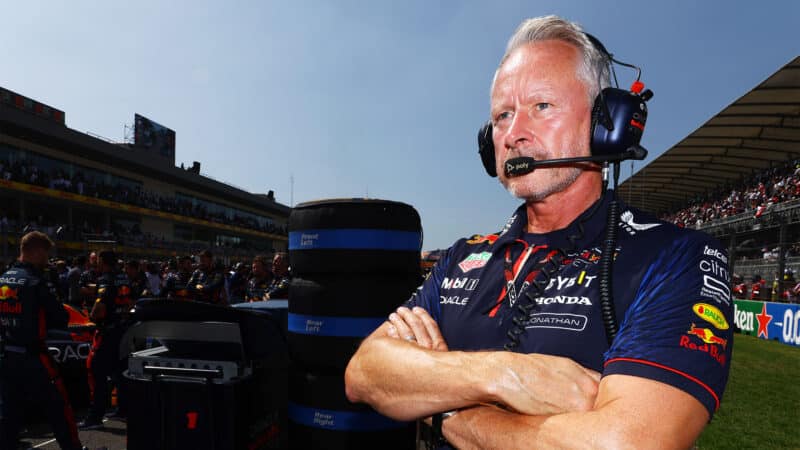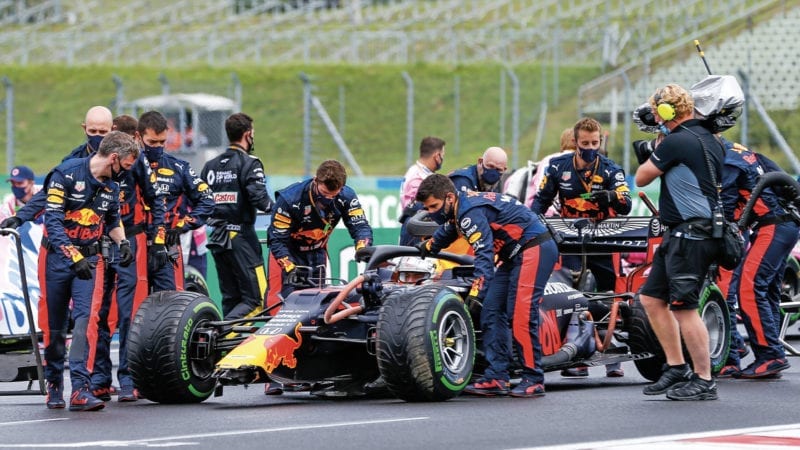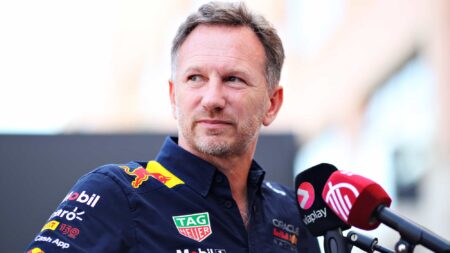Despite the outfit’s success — as Benetton finished inside the top four over the next seven seasons; won back-to-back drivers’ titles with Schumacher in ‘94 and ‘95; and claimed a constructors’s title in the latter year — the atmosphere within the team wasn’t always pleasant.
“There was a lot of competition between the cars in the garage and that was almost encouraged,” added Wheatley. “But I found myself in a sport which I absolutely loved and so progressed from there.”
In 1998, a now 31-year-old Wheatley was promoted to chief mechanic but oversaw what would become a stint of gradual underperformance as the team failed to adapt to new regulations and lost pace as a result.
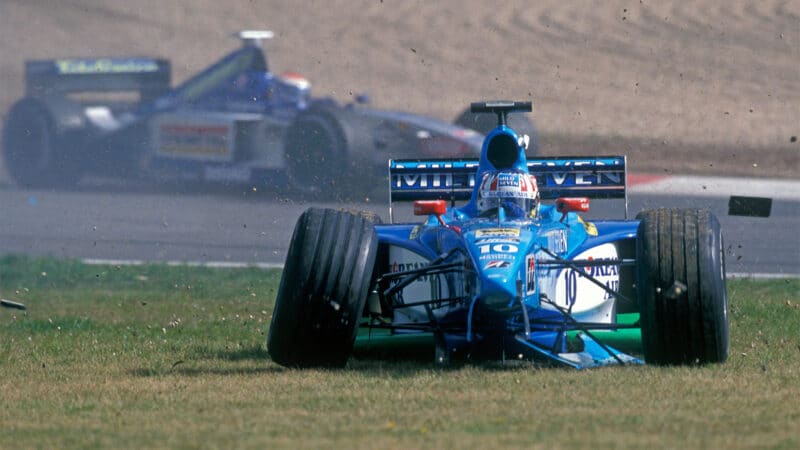
Crashes and failures plagued Wheatley’s final years at Benetton
Grand Prix Photo
Renault
In 2000, Benetton was acquired by Renault which had decided to rejoin F1 as a constructor for the first time since 1986. Wheatley retained his position within the team as chief mechanic.
The historic French brand had been a significant engine supplier since its exit from the series — powering the likes of Lotus, Williams and Benetton to race victories and F1 world titles — but after two years of development, it lined up on the grid as a works team in 2002 with Jenson Button and Jarno Trulli in the cockpits.
In its first season, the team finished fourth in the constructors’ standings and success only grew from there. Led by a young Fernando Alonso — who had been the team’s reserve driver — Renault would ultimately become the outfit to break Ferrari’s seemingly endless streak of dominance with back-to-back world championships in 2005 and 2006.
Wheatley was only there for the first title success, as he was lured from Enstone to Milton Keynes by a 31-year-old Christian Horner ahead of the 2006 season, which would see the debut of Red Bull racing: an F1 outfit built on the ashes of Jaguar F1, which was quickly being filled with experience and potential.
“It was a difficult decision,” Wheatley told redbullracing.com. “Red Bull offered me a wonderful opportunity to build a race team I would want to work in.”
“It took a while” he adds, looking back on his success with the team so far. “Because it takes time to create an environment in which people can thrive – but I’m very proud of what we’ve achieved.”
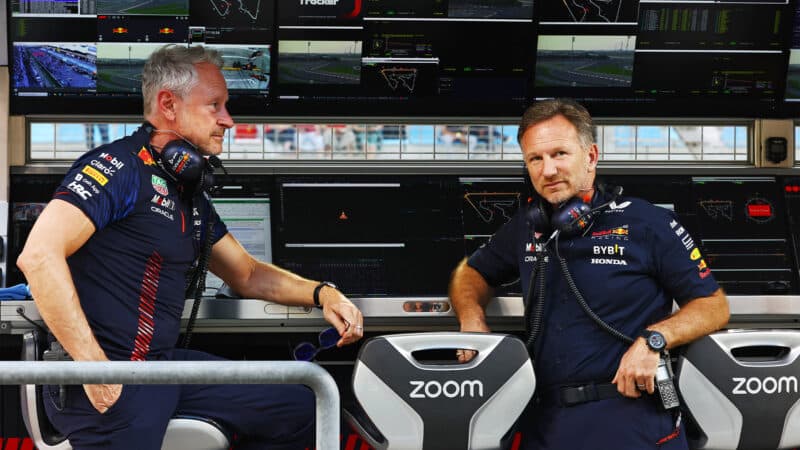
Together since the start (almost) — could Wheatley replace Horner as Red Bull team principal?
Red Bull
Red Bull Racing
Wheatley joined Red Bull Racing in its infancy as a team manager alongside other key signings such as Adrian Newey, Rob Marshall, Peter Prodromou, Paul Monaghan and Mark Ellis — all of whom would contribute so the team’s evolving success.
Aside from the odd point-scoring finish and podium appearance, Red Bull’s first sign of championship contention came in 2009, when Sebastian Vettel and Mark Webber drove the team to second in the championship while securing a combined six grand prix victories. But the following year remains one of Wheatley’s most memorable throughout his time in Formula 1.
“I’ve been fortunate to be involved with winning championships as a mechanic [at Benetton], as a chief mechanic [at Renault] and now as a team manager [at Red Bull]. Of all of those I think I’d have to choose the first championship here at Red Bull as the one which really stands above the others.
“We won it in typical Red Bull style with everything going on: cars crashing, engine failures and everything else. We seemed to do it the hard way – but the resilience of the team stood out. That made me proud. There was so much to soak up, so much excitement and commotion. It really was an extraordinary achievement for the team.”
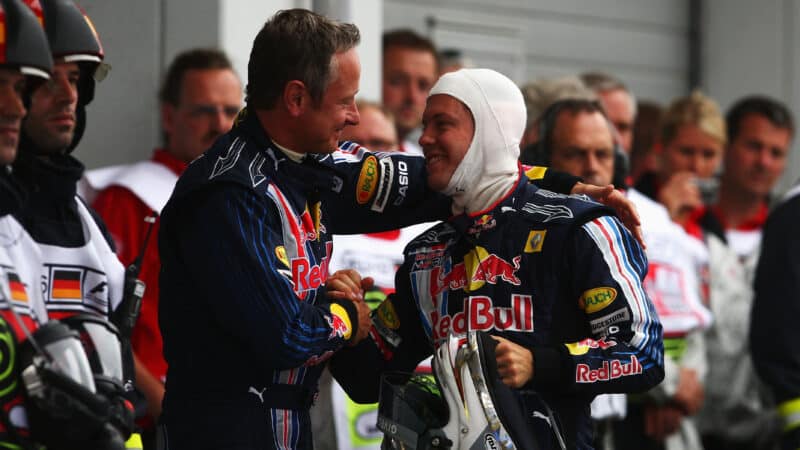
Wheatley celebrates with Vettel in 2009 ahead of world titles to come
Getty Images
Vettel would scoop up a further three consecutive drivers’ titles in the years that immediately followed Milton Keynes’ first F1 championship before Wheatley’s side was eventually dethroned by the dominance of Mercedes who won every championship from 2014-2020.
Nevertheless, Red Bull remained resilient and Wheatley remained a positive force throughout the team’s losing years — earning him a promotion to sporting director in 2018, a post he has retained until August 2024.
